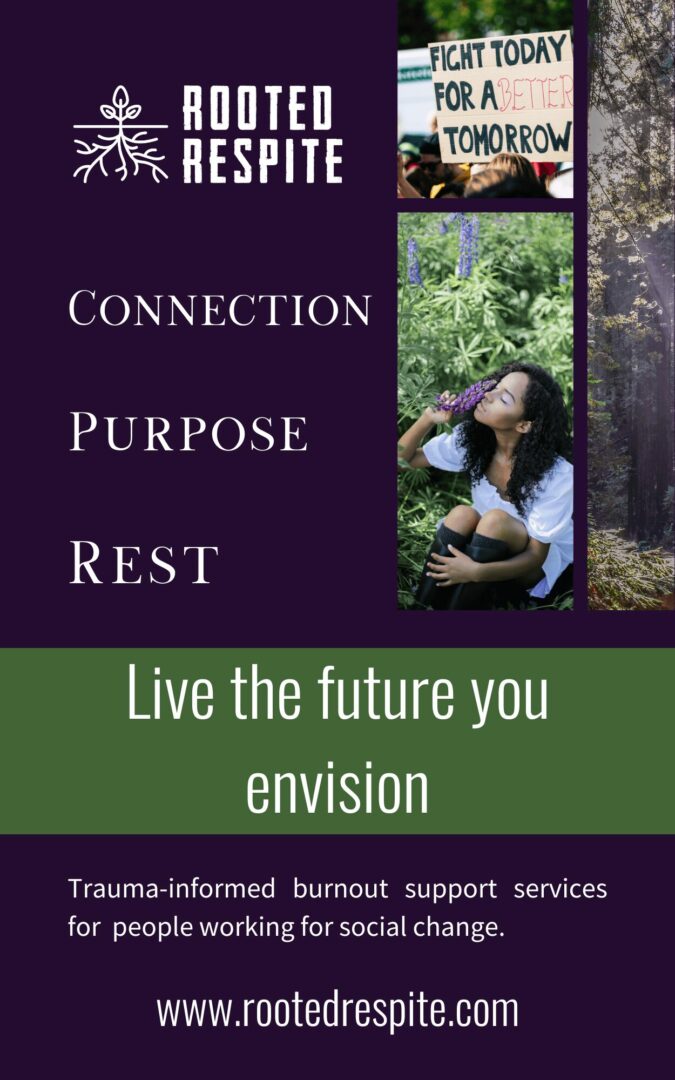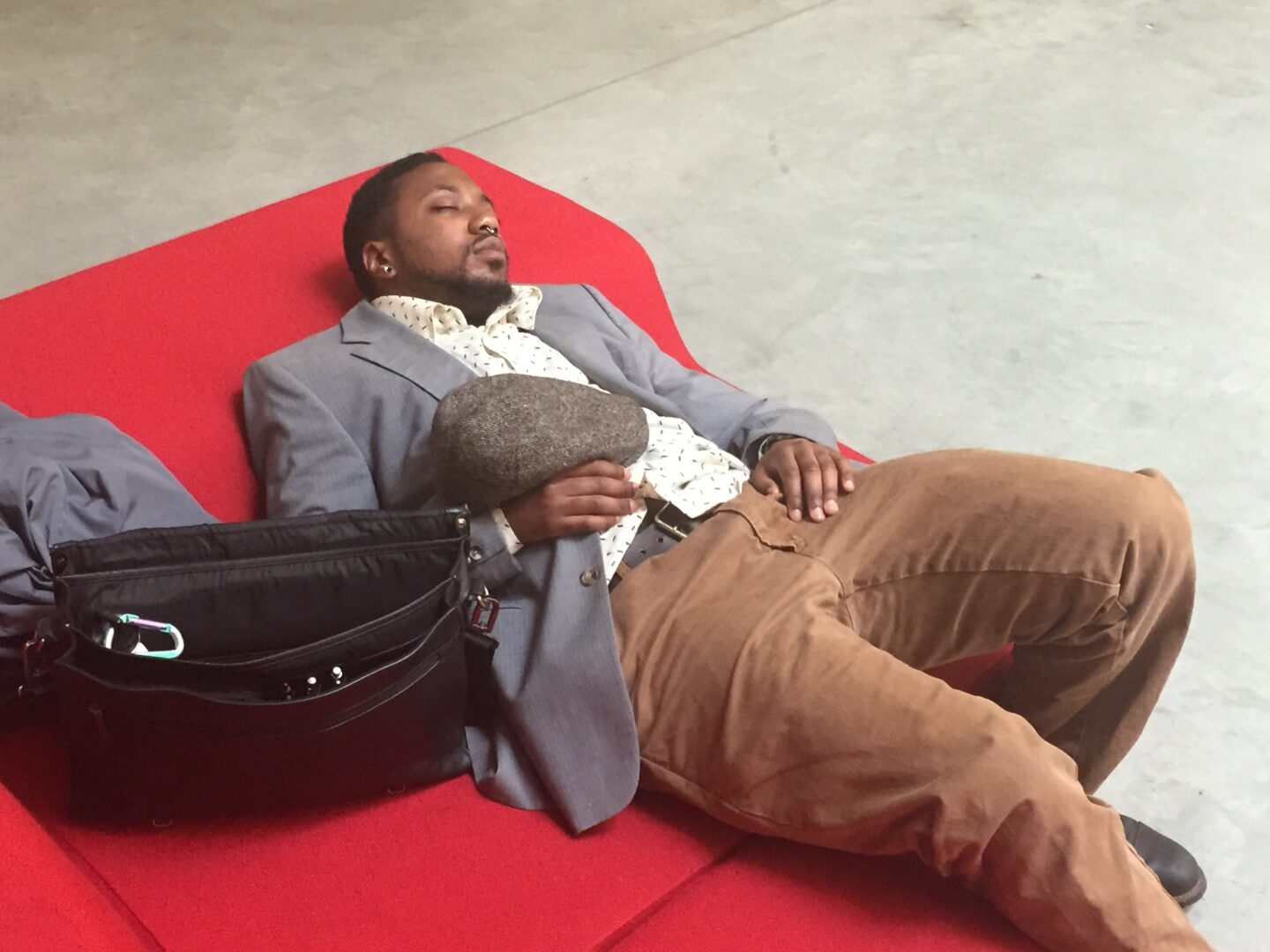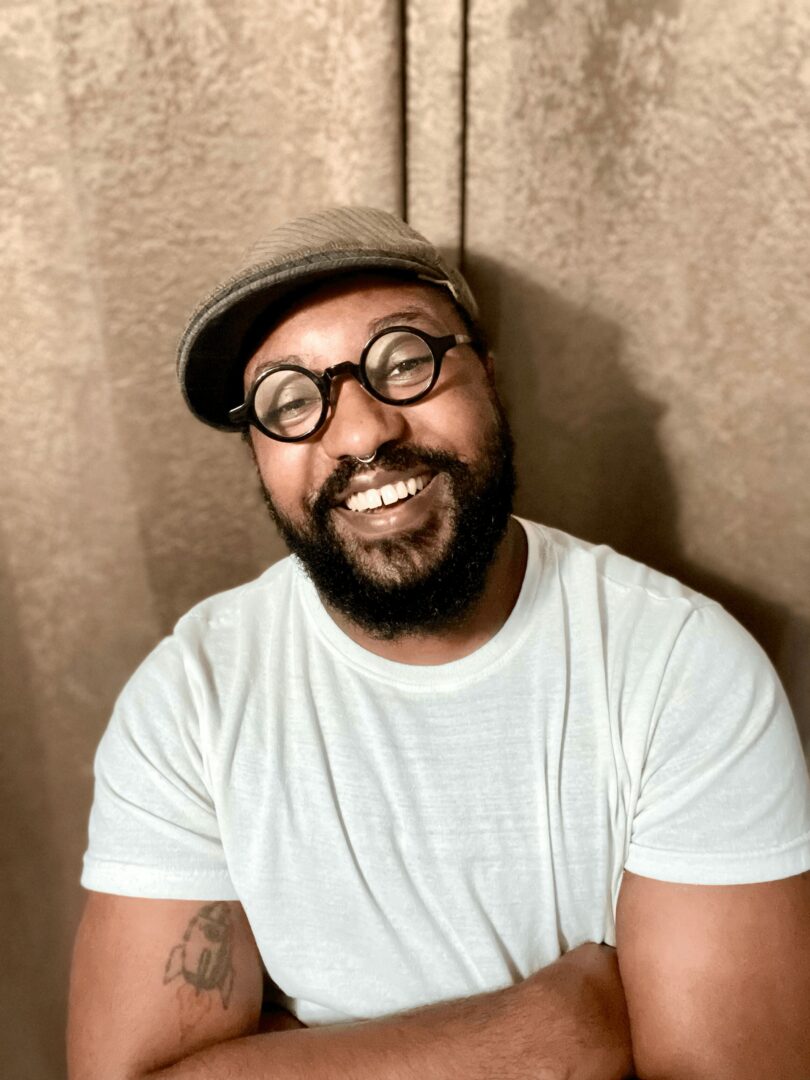We caught up with the brilliant and insightful Taj Smith a few weeks ago and have shared our conversation below.
Hi Taj, thank you for joining us today and sharing your experiences and acquired wisdom with us. Burnout is a huge topic these days and so we’d love to kick things off by discussing your thoughts on overcoming or avoiding burnout
I’ve burned out multiple times in my life and learned something new each time. In my early years as an activist, I’d never heard the term “burnout.” When I started falling asleep in class and saying “no” to hanging out with friends to catch up on sleep, I knew something was off, but I didn’t know what. I thought it might be something medical, which meant that I would need to go to a doctor. That wasn’t possible as a teen with no health insurance in the early 2000s, so I barreled through it.
No matter how much I slept, I never felt rested. I drifted further away from myself into a fog that wouldn’t lift, a lone lost sailor trying to navigate a dinghy through life’s turbulent waters. At this point in my life, I didn’t realize there was anything I needed to recover from, so I hadn’t considered changing my habits. When I spoke to one of my teachers, she said, “It sounds like you’re burned out,” and a switch flipped. I went to the computer lab and asked Jeeves what burnout was. I learned that burnout is exhaustion caused by chronic stress. I felt a little lighter, knowing that what I was experiencing had a name.
In college, burnout struck hard and deep. I worked two jobs on top of a full load of classes while organizing for marriage equality. I had no spare time. I was exhausted. One morning, I woke up and couldn’t get out of bed, so I slept. When I woke, it was late afternoon on the next day. I went to my campus health center to ask about therapy. They made a same-day appointment for me with a graduate intern who advised me to drop some things and spend time with my friends. I left one of my jobs and stepped back from a couple of clubs, which gave me some immediate relief. I intentionally connected with friends a few times a week to bring joy back into my life. I started feeling a little better. I learned that there are limits to my energy and that I can’t give every activity one hundred percent and expect to be OK. I also learned that my wellness entails connection with others.
As a working adult, I learned the meaning behind “take care” as I worked for nonprofits that piled on projects without regard for my physical abilities or emotional needs. Work wasn’t the place for emotions, and deadlines were set in stone. A mentor said to me, “Take your time because at the end of the day, if you die here, this place will mourn you for a day, then replace you just as quickly.” This sparked a realization: burnout is inevitable if I don’t stand up for my needs. I started to redefine success for myself, which meant reprioritizing my life. Work was no longer my top priority, and I treated it as such. I let joy and integrity be the metrics for my success. I started to live by my values and saw my life transform because of it. Now, I work for myself and wake up each morning eager to greet what joy awaits.

Appreciate the insights and wisdom. Before we dig deeper and ask you about the skills that matter and more, maybe you can tell our readers about yourself?
In 2023, I founded Rooted Respite, a coaching practice that supports social changemakers through burnout. After experiencing burnout multiple times as a progressive activist, I learned first-hand how the causes we give our lives to can perpetuate the very systems we seek to dismantle.
Where most burnout advice focuses on the individual, Rooted Respite takes a systems approach. We are unique in that we look at your eco-system of care to see where it’s out of balance and devise solutions to re-balance it. We examine four key aspects of that eco-system: relationship to self, relationship to others, how you make meaning, and your purpose in life.
Too often, people function on auto-pilot, enacting scripts and beliefs they learned early in life without considering whether they still believe those values. Through 1-on-1 and group coaching, we help people identify the origins of their deepest beliefs about work and success to root them in the values they hold today so they can step boldly into the life and world they envision.
Because this work can bring up past trauma, we are trauma-informed and recognize the many ways trauma can impact how a person responds to certain situations.
There is so much advice out there about all the different skills and qualities folks need to develop in order to succeed in today’s highly competitive environment and often it can feel overwhelming. So, if we had to break it down to just the three that matter most, which three skills or qualities would you focus on?
Self-awareness is one of my core values. The willingness to look inward and to approach my beliefs and habits with curiosity has helped me draw connections between past events and my current behavior. This is critical to the coaching journey. One of the first things I tell people who approach me for coaching is that they have to want it, meaning that they have to be willing to do the work that will lead to their healing. I think a lot of us learn to look upon “bad” habits with shame, but those habits are actually the key to telling us how we’ve survived. Approaching them with curiosity can give the parts of ourselves that formed those habits the space to teach us what they know while providing an opportunity for our grounded selves to release the habits that no longer support thriving.
To that end, learning about trauma has also impacted me greatly. I don’t recommend anyone seek out traumatic experiences, but the fact is that most people have at least one in their background. Trauma stays in the body, and unless we take intentional steps to address it, it impacts what we believe to be possible for ourselves in the present. I’ve always had big goals and ideas, but my traumas taught me that my goals and ideas are irrelevant. It’s taken a lot of work in my adult life to even begin reversing those beliefs. Even if you’re not in a place to unpack how trauma has impacted your life, learning how trauma affects the body is helpful for healing.
As for qualities that have helped me, I think determination is a big one. I’m stubborn, and once I set my mind to something, I do it. This has been a tremendous boon as an entrepreneur. I can take an almost scientific approach to my failures and successes when coupled with self-awareness and curiosity. I want to learn how and why I got the results I did and whether those results are replicable.

How would you describe your ideal client?
My ideal clients are hungry for change. They know the world can be a more equitable, sustainable place and take steps in their daily lives to make it so, but they’re feeling the weight of the world and are beginning to question whether change is actually possible.
Contact Info:
- Website: https://www.rootedrespite.com
- Linkedin: https://www.linkedin.com/in/tajmsmith/

Image Credits
Veronica Jay
so if you or someone you know deserves recognition please let us know here.




